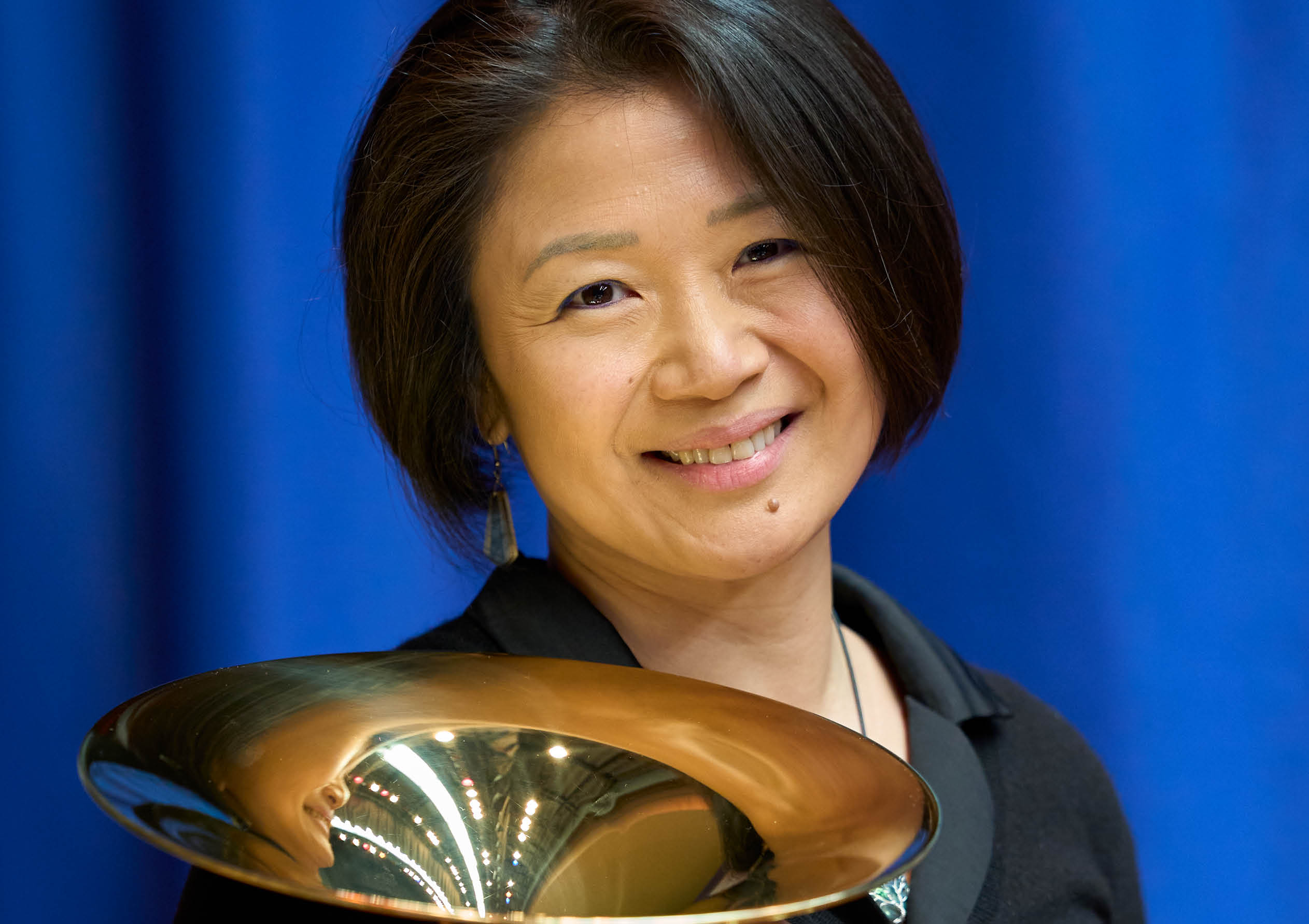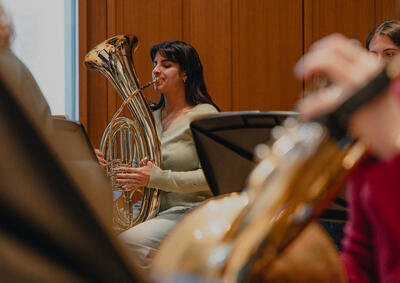Ginger Kokoszka ’02MM, on her path to a career in music therapy
Before enrolling at Yale, Ginger Kokoszka ’02MM considered embarking on a pre-med track. Her father was a doctor and her mother worked as a pharmacist. Kokoszka shelved that area of interest and ambition, though, and, after earning a bachelor-of-music degree in music performance from the University of Southern Mississippi, enrolled at the Yale School of Music, where she studied horn with William Purvis. It was after graduating from Yale that she returned to her desire to work “in a helping field.” That interest was motivated in part by “setbacks in terms of over-practice,” specifically, tendinitis and carpal tunnel syndrome. It was Purvis, Kokoszka said, who “put this idea of mind and body [connection] in my head” after she suffered injury.
Kokoszka, whose sister worked at the time as a speech therapist, turned her attention to music therapy, a pursuit for which her studies at the Yale School of Music provided a strong foundation. “It was instrumental in terms of how it prepared me to work in a field outside of music,” she said, explaining that music therapy, which she studied at Drexel University, where she earned a master-of-arts degree in music therapy and counseling, “required the same types of transferable skills” that music does, “self-discipline” among them.
“There is an acute connection between emptions and how your body feels,” she said, using heartache and anxiety as examples of emotions that can be felt, physically, and explaining that music “has the ability to address these issues in a functional and clinical way.” Music, she said, can also help heal the body after the loss of neurological functions. “People with loss of speech,” she said, “have been known to regain that ability using music to rebuild neural pathways.”
To date, Kokoszka has worked as a music therapist with many populations — children, older people, persons in mental health crisis, and those with dementia. And she has continued to perform, having addressed the injuries she suffered after leaving Yale. With her newfound expertise, Kokoszka “knew how to reach out to my audience in deeper ways.” Her understanding of and expertise in music therapy, she said, “enriched my musical learning.” And vice versa. “Music reaches where language doesn’t,” she said.






